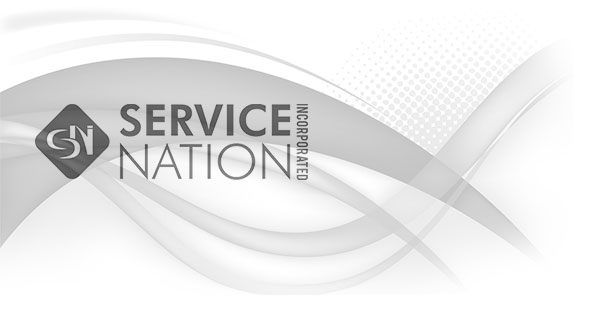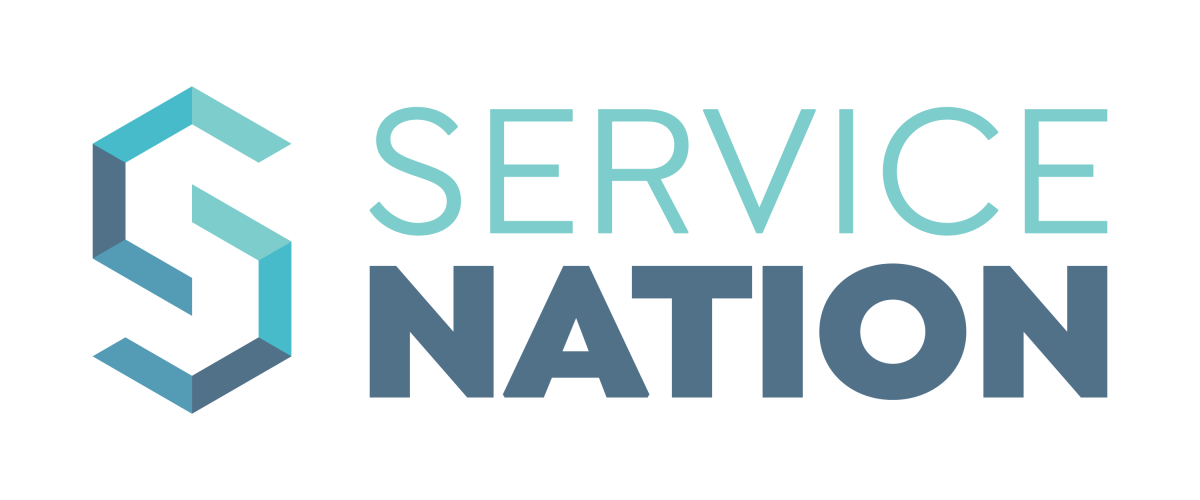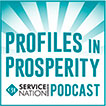Ben Stark: Of course, our core value with the company was to build a company that was very respected in the industry, which attracted people, but keeping the people was a lot harder to do. One of the main things that we tried to implement towards April, May of every year was a retention program, which by most part consisted of trying to find ways that we’d get guys to sign on for the next four or five months. And if they did so there’d be a reward at the end of it, primarily training programs and some fun things to do like a fishing trip. And then we’d also have some type of tool program that was built around it also that would help them build their tool chest. As far as the guys that were working in the field anyway. Of course, we kind of did the same thing, would try to fit something around the CSR department as well, that gets them involved in the company and wanting to stay.
David Heimer: So how would this work if you’d around April or May you call each tech in and you’d say, listen, we want to make sure that you’re happy and you stay with us for the next four to five months. Here’s a program that we’ve got in place. It’s a combination of training, a big party at the end of the year or at the end of the season, and a tool program. Is that kind of how it went?
Ben Stark: Yeah, that’s exactly how it went. We allow probably as much as about $500 in the tool account for them to get, and then we would also have a training program. Of course, we wanted them to train up. So, we would be willing to invest so much money in training after this time was completed. So, about when it was completed of course was fall, which is September, October our normal slow months. And that coincided with most of the training programs that were going on that time of year, where they could sign up and better their skills, whether it be communication, sales, maybe going into some management classes if they thought that may be what they wanted to do after they moved from being field personnel. That was a package that was generally anywhere from probably 800 up to about 1200, depending on what we thought the budget might be. And we kind of figured that we were going to allow them a bonus at the end of the year because our last five or six years in business, we were very, very profitable and we almost always paid bonuses at the end of the year. So we wanted to use it to our advantage so that it would keep people with the company when people were trying to of course pick them off from our competitors.
David Heimer: Right. So about $1,200 per person on this initial busy season retention program. Did you put this into a document in front of them? Would they sign it? You would sign it. Was it that formal?
Ben Stark: Yeah. We would have them sign on for so many months and if they did, this would be the package that they get, kind of a quality control package that would help them be better at their jobs and we would provide the tools. And of course, like a fishing trip at the end, that was a big company kind of party, get together. A lot of times we took them up to Lake Texoma, striper fishing, and things like that as a reward.
David Heimer: Yeah. I was just going to ask what the fun item was. So a fishing trip typically, and again, you’d wait until the end of the summer to do that. So on the training part of that, they’d have an opportunity to select the programs that they were interested in. You’d say something like, look, we’re willing to invest $500 or $600 in training for you at the end of this period, you get to select the training program you’d like to attend. It’s got to be something that is relevant to us in your career here with us in the future. But other than that, we’re wide open. Is that sort of how it went?
Ben Stark: Yeah, I mean, we would even try to tailor something for them kind of like after the fact I’ve thought about more things, in the last four years, since I actually, after I sold the company about more unique plans, that was kind of more like a career path for people, development of people. I kind of looked at it like, a boy scout system where you’d come in, as a Tenderfoot you’d step up to first-class alive, a star and then an Eagle scout or however those steps went. But anyway, I think, developing programs like that for a career path where if a guy comes in for him to move up a level, he’s got to achieve a certain amount of training, a certain amount of on his tool list. And then he had to recruit somebody to move in, to take his place.
As he moved up, he needed to help recruit somebody to step in behind him to take his place. And I’ve always thought that the best way to do something like that would be ways, figure out if he helped train, recruit, and train this person, he would have some vested interest in them. So some way we would, you would find a way to reward him, whether it’s monetarily off of the earnings of that person he brought in, or it might be a point system where it could be something like the days off or things like that, that you reward a person when they do help mentor a person coming in behind them, as they move up through the ranks.
David Heimer: Now, did you implement anything like that at Stark Air?
Ben Stark: No, this was kind of an after-the-fact, but I talked to several people and I think there are some successes out there doing a program like this already. And the successes come from again, just trying to retain people for longer amounts of time in your company. So it’s like if you’re going up through the steps and you’ve recruited two or three people behind them, and you’re getting rewarded for the actions of those people. It’s kind of like golden handcuffs staying with the company because if you leave, you kind of drop back and you actually, lose that ability for those people to earn, help you earn off of what you’ve helped develop with through those people.
David Heimer: Right. You mentioned also that you put a package together for CSRs during the summer months. Can you describe that briefly?
Ben Stark: I think the best reward for CSR is it’s almost like some type of weekly program where if they’re hitting their budget or the goal that you just set for them, you do neat little, specific things for them. I mean, you can do stuff like gift certificates to pedicures or massages or things like that. But again, I still think that you develop a program for people like that, that keeps people involved in your company, where if you want them to retain them through the busy months, especially keep them from going to your competition. You have to figure out ways to reward them in maybe a monetary way or maybe even again, it may be days off or special little gifts that you have. But I think it all needs to be in writing so that people see that you’re stating that this is the end result of the program that you’ll receive. You’ll receive these rewards if you’re with this and you move up to the line with us.
David Heimer: So along the lines of the golden handcuffs you also had, was it the warranty fund that you guys built up? You may have not called it the warranty fund. That always seemed to me like people wouldn’t want to leave because they had that money coming in from that fund as well.
Ben Stark: That was our installation production pay fund and we would pay them a percentage. They got paid based on a percentage of what they installed. But we also had a quality control fund that if they did their job right and there was, few callbacks and few problems with the jobs after they left, they would have a fund that built up for six months. And at the end of that six months, they got paid for everything that happened. If it was January, they did all their installs, we would hold back 1% quality control fund that they would receive at the end of June after it had gone six months, any type of warranty or repair work that had been done would be ducted down from them and it would leave them with a package at the end of the month. It’s almost like getting five paychecks or an extra paycheck every month. And that was another thing that was strictly a quality control bonus. And they received that at the end of that. And there was another kind of thing I’ve said, it’s kind of like golden handcuffs where they did their job right, they got a reward at the end for doing their job exceptionally well.
David Heimer: Yeah. I mean, you’d hate to lose that. That would be very hard to walk away from. And, you know, after you have been with the company for six months, you’re going to start getting that every month.
Ben Stark: It really did help. The production department is a lot of times in companies they’re the least looked upon. But they’re the hardest workers and they bring in the most amount of money for the company. If you think about it like that. And I think they deserve their just reward if they’re out there doing their job properly. And we spent a lot of money on training with those guys as well. We wanted for them to be very high quality at what they did and not have the warranty problems that prior to starting these programs, we were just like everybody else, we had warranty challenges and it was always a large cost to the company or this puts it kind of on their back and gives them the responsibility to make as much as they want or suffer the consequences if they’re not doing their job right.
David Heimer: Wow. That’s a great idea. I can see that working out really well, even sending them to do their job well. And if they do their job well, they’re well compensated for it, great plan. So, would the installers also participate in that retention program that we talked about at the beginning?
Ben Stark: Yeah. That would be a separate program. We looked at the quality control program as something that we were going to pay them, as kind of like we had budgeted in our financials as part of either our repairs that we had to do after the fact or the reward that they would get. And then that didn’t matter to us because they were probably going to get a bonus at the end of the year. And if we could figure out a way to help them see that and retain that, or a shorter period of time, for three or four, five months during the summertime, that that reward was something that we would just hand out at the end of that time and just kind of deduct it from what our general bonus was going to be at the end of the year. So it was kind of already all budgeted. It’s just the way we handed it out.
David Heimer: Got it, well, this has been great. I think this is very useful information. I think our members will get a lot of great ideas out of it. I know the podcasts subscribers might want to contact you with more information. You do some consulting through service nation. Is it okay if I give everybody your email address?
Ben Stark: You bet I’ll be happy to go out and help them to design programs too.
David Heimer: Alright. So, it’s ben.stark@serviceroundtable.com. And thank you so much for doing this with us. I think this is invaluable information. I know they’ll enjoy it. So I look forward to talking to you in the future.
Ben Stark: You’re welcome and I enjoyed doing it.





 (877) 807-0869
(877) 807-0869 Member Login
Member Login

